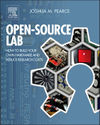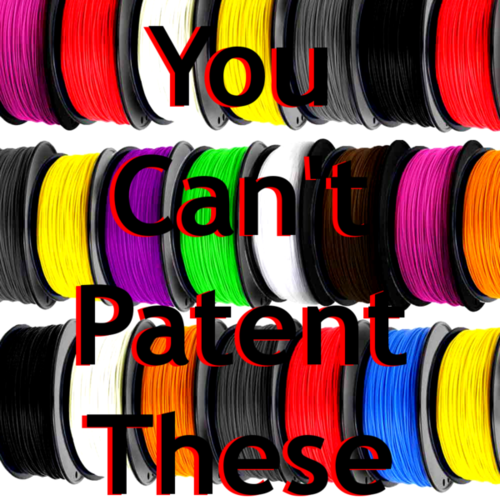A novel approach to obviousness: An algorithm for identifying prior art concerning 3-D printing materials

|
By Michigan Tech's Open Sustainability Technology Lab.
Wanted: Students to make a distributed future with solar-powered open-source RepRap 3-D printing and recyclebot recycling. |

|
Contents
Source
- Joshua M. Pearce. A novel approach to obviousness: An algorithm for identifying prior art concerning 3-D printing material. World Patent Information 42, 13–18 (2015). doi:10.1016/j.wpi.2015.07.003 open access
- Original algorithm development
Abstract
With the development and commercialization of the recyclebot (plastic extruders that fabricate 3-D printing filament from recycled or virgin materials) and various syringe pump designs for self-replicating rapid prototypers (RepRaps), the material selection available for consumers who produce products using 3-D printers is expanding rapidly. This paper provides an open-source algorithm for identifying prior art for 3-D printing materials. Specifically this paper provides a new approach for determining obviousness in this technology area. The potential ramifications on both innovation and patent law in the 3-D printing technological space are discussed.
Highlights
- Rapid expansion of 3D-printing materials for consumers producing 3-D printed articles.
- Open-source algorithm proposed for identifying prior art concerning 3-D printing materials.
- Proposed algorithm narrows the search for 3-D printable materials with specific properties.
- Prior art identified by proposed algorithm can invalidate innovation-restricting patents.
- Potential ramifications on innovation and patent law in the 3-D printing discussed.
Keywords
3-D printing; Additive manufacturing; Materials; 3-D printer filament; 3-D ink; Intellectual property; Prior art; Intellectual monopoly; Public domain; Open source; Open source materials; Libre
See also
How IP gets in the way of Innovation
- Open-source nanotechnology: solutions to a modern intellectual property tragedy
- Open source nanotechnology
Advantages of Free and Open Source Development
- Quantifying the Value of Open Source Hardware Development
- Building research equipment with free, open-source hardware
- Return on Investment for Open Source Hardware Development
- Open-source Lab
- Open-source 3D-printable optics equipment
- Open source science
- Open source 3-D printing of OSAT
- Category:Open source optics
- Open-source hardware
- Open-source hardware for science in Ecuador
- Expanding the Consumer Bill of Rights for material ingredients
In the News
- New Algorithm Fights to Keep 3D Printing Materials Open to All - 3D Printing Industry
- Joshua Pearce creates new algorithm for obviousness to prevent 3D printing material patents - 3ders , Maker 3DPrinting
- Shots Fired: The 3D Printing Materials IP War Has Begun as Joshua Pearce Releases Algorithm for Obviousness - 3DPrint, 3D Printing Magazine
- 3D打印原材料知识产权之争全面开火! -MW35 (China)
- What are the legal aspects of 3D printing? A European law firm weighs in. - 3Ders
- This One Publication Can Invalidate Most 3D Printing Patents - GreyB
